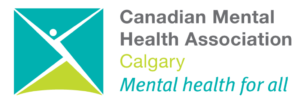Menu
Close
Mental Health and The Courtroom – Heather’s Story
May 26, 2017
As a Calgary family lawyer, I work closely with a wide range of people dealing with difficult personal matters. Often these cases have a mental health component.
For example, mental illness can be a significant contributing factor to divorce. In other cases, a family might be seeking an order under the Mental Health Act to help get a suffering individual into treatment, or trying to find a way to deal with diminished capacity in an elderly grandparent.
These cases can be challenging for me as a lawyer, but they are far more difficult for individuals and families coping with a mental illness. The courtroom is not a clinic, and judges are simply not well-equipped to deal with mental illness or accommodate it.
While there is room for the profession to change and become more responsive to mental illness, for now we must work within the system we have. As a result, it’s critical to ensure that the person suffering from mental illness has access to appropriate legal resources and representation.
This post is intended to provide a straightforward guide to some of the free or low-cost legal resources available in Calgary for people suffering from mental illness, and their families.
- The Calgary Courthouse
The courthouse, or the Calgary Courts Centre as it is formally titled, houses a Legal Information Centre operated by dedicated staff and stocked with self-help resources that can be invaluable in navigating your family law issues.
- Calgary Legal Guidance
For all the criticism lawyers take, there are still so many prepared to volunteer their time to assist low-income Calgarians. You can find them at the Calgary Legal Guidance clinics, which run regularly during weekday evenings to maximize their accessibility. Appointments are required. The volunteers are complemented with full-time staff lawyers who are able to make court appearances and take other steps for clients.
- Pro Bono Law Alberta
Pro Bono Law Alberta (PBLA) runs two programs in Calgary. The first is the Queen’s Bench Amicus Court Assistance Program, which is intended to help self-represented litigants access the court system and involves volunteer lawyers attending court to assist people appearing before the court. While you still have to attend court yourself and speak to your issue, the Amicus lawyer assists in clarifying the issues to the court and drawing out the true facts of the case.
- Student Legal Assistance
The law students at the University of Calgary run a legal clinic offering free legal information (not advice) including family law information. They are also able to appear for clients in court in some limited circumstances. Depending on the nature of your legal matter, SLA can be invaluable in helping you navigate the court system and protect your legal rights.
- Legal Aid
While technically not free, the Alberta Legal Aid system may pay your lawyer when you can’t afford to. Strict income qualification guidelines restrict this funding to low or no-income applicants, and your legal matter must be serious enough to warrant public funding. If you qualify, Legal Aid will ensure you have the benefit of legal counsel working on your matter and representing you in court.
- Lawyer Directory
Finally, I would be remiss to finish this article without mentioning the great work being done by CLERC, the Children’s Legal & Educational Resource Centre. Where mental health issues in a family law context involve children, CLERC is a great organization to turn to both for legal representation of youth and children, and for general information regarding legal issues affecting children.
Conclusion
The legal system is struggling with a tremendous backlog of cases and a shortage of judges. At the same time, Legal Aid is managing a funding shortfall. It can be difficult to find the help you need on your legal matter, particularly if you are recovering from mental illness, and our overburdened courtrooms are not the right place to ask for help. Before going to court by yourself, try to make the connection to the resources available to you.
The author Heather Fraese is a partner at McGurk Fraese Family Lawyers, a law firm with offices in Calgary and Vancouver. When she’s not helping clients with their legal matters, she can be found training for marathons or spending time with her family.

Our Peer Support program services can be accessed over the phone at 403-297-1402 or through email at peer@cmha.calgary.ab.ca.
